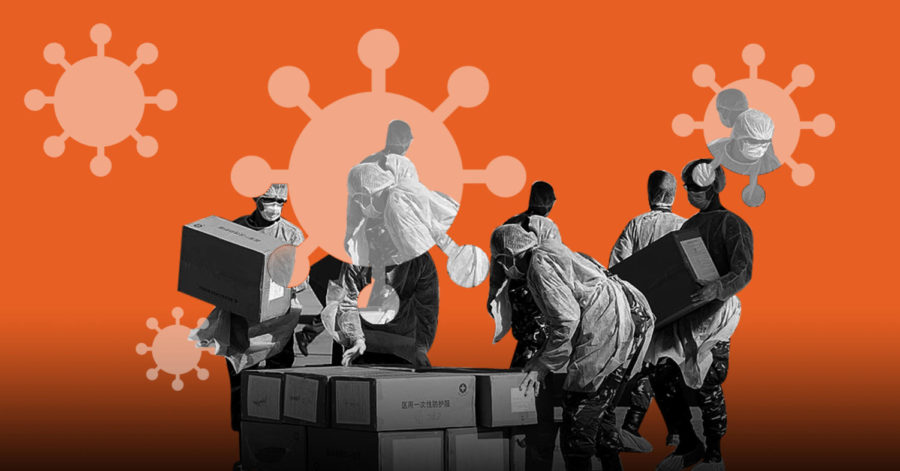Rechkemmer: It’s not over yet
June 29, 2020
As the weeks go by, there is a common scene unfolding across the United States: bars and restaurants are reopening, people are flooding into public spaces without masks and COVID-19 case numbers are increasing. The United States is not alone in this, as global case numbers continue to rise dramatically.
However, our country has played a dangerously disproportionate role in this increase. While many countries in Europe and Asia have the pandemic relatively under control, the United States is now experiencing large spikes in coronavirus case numbers. The global case total recently surpassed 10 million and while this is a grim milestone for the entire world, the United States alone is responsible for over a quarter of these cases.
One cause for the increases in infections across the country is relatively apparent: the premature relaxation of social distancing measures. Most states have been in the process of reopening for the past weeks after experiencing stabilization and even decreases in COVID-19 case numbers. However, experts argue reopening occurred too quickly and too unsafely in many states.
States that have reopened are showing significant upticks in infections and we are seeing multiple cases of outbreaks centered in bars and restaurants.
There is another and perhaps more important reason for the increase in cases of COVID-19 in the United States: many people have simply stopped caring.
When comparing the current behavior of the people around me to their behavior at the onset of the pandemic, I notice a clear disconnect.
Three months ago, people were obsessively wearing masks and sanitizing.
They would only leave the house to shop for essentials.
They refused to be within six feet of anyone outside their immediate family.
Social distancing was critical, as was the protection of vulnerable friends, family and community members. Today, these same people will go to crowded stores and restaurants, forgo mask wearing unless required and (my personal favorite) party at packed bars.
What changed?
There may be no correct answer to this question, but from my point of view, many people in the United States lack a sense of responsibility for themselves and their communities.
America is a place renowned for independence and individualism, but our community ethic is severely lacking. We tend to do what we feel like doing, even if that is not the best for those around us. While other countries had slowed the spread of COVID-19 by staying inside even when it became inconvenient, many Americans gave up on social distancing as soon as they got bored of it. We protested social distancing measures while they were still in place, and as soon as they were relaxed, we jumped at the opportunity to “get back to normal,” regardless of how many people it could endanger.
Whether or not you choose to care, this pandemic is not over yet. People are still dying.
Don’t be selfish.
It is essential to acknowledge not everybody can be expected to social distance entirely, or even in the same way. Some must work to provide for themselves, some desperately need social interaction after months of distancing and everybody has unique situations and issues only they can fully understand.
Evaluate yourself, know your limits and do the best you can to be a good citizen and community member. Refrain from judging the behavior of others, but do seek to inform the people around you and encourage them to do the right thing.
Most importantly:
This pandemic is not over yet. Start acting like it.







